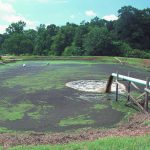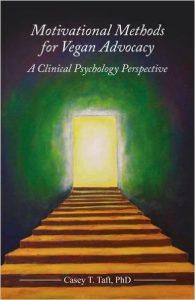AUTHOR: Jimmy Videle, co-owner of Ferme de l’Aube


I was beyond excited to learn that Leonardo DiCaprio, the United Nations Ambassador of Peace on Climate Change and Executive Producer of the new cut (available on Netflix) of Cowspiracy:The Sustainability Secret, was creating a documentary about climate change, entitled Before the Flood. He spent two years traveling around the world witnessing the ongoing environmental devastation and had access to world and religious leaders, scientists and parts of the planet that the vast majority of us do not. It was going to monumental. It was going to be a call for world leaders to invest heavily in renewable energies, a call for humans, both individually and collectively, to consume less and to become vegan, as well as to curb our appetites for planes, trains and automobiles.
Simply Stated, the Three Biggest Sectors That Spew Carbon and Methane Into the Environment Are:
Fossil Fuels
Animal Agriculture
Transportation
Unfortunately, This Trifecta Was Not Reflected in the Body of the Documentary:
Fossil Fuels were highlighted for about 95% of the movie.
Animal Agriculture received 5 minutes worth.
I was shocked and then I was angry.
Now I would like to offer the information and solutions that Leonardo failed to speak out about.
Important Statistics Cited in Cowspiracy but Missing From “Before the Flood”:
Livestock and their by-products account for at least 32,000 million tons of CO2 per year or 51% of all greenhouse gasses.
By simple math, this would mean that each year there is no greater emitter of greenhouse gasses than the animals who we raise for food and the crops that we raise to feed them. Think of all the land used, water used, waste emitted, oil needed, transportation, refrigeration, packing plants, exploited slaughterhouse workers, etc. Not to mention the most significant fact: Trillions of sentient beings killed every year, without their consent, all to fuel our insatiable appetites.
Emissions from agriculture are projected to increase 80% by 2050, while emissions from energy are projected to increase only 20% by 2040.
We very well may see a 100% renewable energy occidental world by 2050. It is possible. The costs are outrageous, but there may be a collective will of world leaders. Yet it will not change anything. In fact, by expanding our animal agriculture habits, 60% more emissions will be in our atmosphere, greatly worsening our situation.
Even without fossil fuels, we will exceed our carbon dioxide equivalent limit of 565 giga-tonnes by 2030 from raising animals for food.
Case in Point!:


To create a documentary that talks solely about fossil fuels and the necessity of leaving them in the ground is discussing only half the problem. It is absolutely imperative that we push the discussion forward about eliminating animal agriculture. The issue is not about eating less, or shifting from eating of cows to chickens, as the documentary states, but rather eliminating 100%, the use of animals for food.
Despite views to the contrary, we can, as individuals stop contributing to the environmental devastation caused by animal agriculture.
Envision a 100% Vegan World:
Critics may say that we should not impose said vision on others in developing nations. Yet, we are already stealing their lands, using their water and polluting their air, all in the name of animal agriculture. As the US and Canada become more aware of the benefits of veganism, companies here are continuing to sell their animal products abroad, in most cases forcing these products into the mouths of those who are the most malnourished. Therefore, these corporations are already imposing their views on the less fortunate, making them sicker and poorer. A Vegan world could provide food for all people, because it is cheaper to produce and requires less land and water resources to do so.
Advocate for the Complete Elimination of the Exploitation of Animals:

Anything else is missing the mark. For example, we would never say in our society that it is acceptable for people who abuse their spouses or children to reduce said abuse or that it is acceptable to sexually assault women 3 days out of the week instead of 7. Neither is it acceptable to have human slaves do our work as long as we treat them “humanely”. We abhor these beliefs and rightly so. We need to adopt the same perspective when someone advocates for ‘Meatless Mondays’ or harm reduction.
We ought not to suggest that to simply reduce rather than end our own contribution to animal exploitation is a worthy end goal.
(Casey Taft__Motivational Methods for Vegan Advocacy, page 14)
You Have the Power to Change:
I have had conversations with many people who have said that the only way that we are going to change our abuse of animals is through governmental intervention. This documentary is a classic example of how this view get us nowhere fast. Government is slow in acting and anytime a government forces a society to do something, the backlash is extreme. Look at prohibition in the 1920’s United States. Even worse, in 2016 corporations are mammoth entities which pull the strings of all our politicians. Good luck changing that. But each one of us, individually, can choose wisely, researching and adopting the least exploitation possible. The more we consume of something, say Soy and Nut Milks, the more they will be produced. The less we intake, say milk products from cows, the less that will be produced. It is the law of supply and demand. Corporations will not continue to produce and sell that which is unprofitable.


Have Hope That Change is Coming:
It is the only reason I can be at the slaughterhouse, watching as the trucks, each filled with over 10,000 chickens, come in. It is the reason I can stand for two hours in -25C weather with my Je Veux Vivre (I Want to Live) , DXE (Direct Action Everywhere sign . I do this because I believe that the change can happen. I need all of you to believe it too.
Solutions Simplified:
1. Become Vegan, 100%, not just in your eating choices, but in the clothes you wear, the personal and household products you use and the entertainment you watch.
2. Consume as little as possible, re-use, buy used and research all your purchases so that human animals are not being exploited by our corporations and our consumption.
3. Educate yourself, watch documentaries on Netflix and YouTube, seek out books on animal rights activism and veganism. Share the movement on social media.
4. Be an activist. The more of us there are, the more of us there will be.
It is not always easy to have hope in what seems like a hopeless world. It is not easy to stand up to suffering and exploitation and society’s societal norms. But, as in all things, if you don’t who will?
Annie’s Vegan View
Let’s all be a part of the discussion.
May all beings be happy and free.

Thanks! Shared!
You are most welcome, Nancy and thank you very much for sharing.
Take care.
Anne
Hi Anne,
I enjoyed reading this article by Jimmy Videle. I can see he is as passionate as you about wanting a vegan world. I wish there were more of us. I too was extremely disappointed in “Before the Flood”. It would be amazing if a documentary could be made that focused solely on farmed animal agriculture and veganism. I am always disappointed when celebrities weaken the vegan message. They are in such a good position to tell the world what we could only dream of.
I agree with Jimmy that we are not going to be able to get the government to change their ways. We need to focus on what we can change at an individual level. The “common man” has the power to create change if enough of us stand together to do it.
You told me a while ago Anne, that “knowledge is power” and I think this is a great thing to remember when we are feeling downtrodden and that the movement isn’t growing as fast as we would like. All we can do is educate people at the end of the day and hopefully help them to find some compassion and to make ethical choices which will benefit both the animals and the environment. We cannot force people into becoming vegan. The decision lies with them. We have to show them the way through the facts which is why I think your website is great. It puts the facts out there for the world to see. The government cannot be relied upon. The vegans and the activists have to be the agents of change and be prepared to discuss what no one else will.
I believe things are changing but sadly not fast enough. If we keep addressing the “elephant in the room” there will come a time when others cannot avoid it anymore.
Take care and thanks to Jimmy for all the great information
Rachel
Hi Rachel,
Jimmy is my go to person when it comes to learning more about planet devastation as well as veganic farming. I glad that you enjoyed his article.
I agree with you that governmental change can be very slow.
I appreciate you interest in my website.
Take care.
Anne
I don’t disagree, EXCEPT for the analogy used. It’s a common one (we wouldn’t advocate that people rape less, only abuse on Mondays, etc.) but it misses the mark in a big way, because the behaviours usually cited are ALREADY either illegal or frowned upon by the majority. Consuming animals however (much as we don’t like it), IS legal and seen as “normal” by most of society, so I don’t think the analogy is an effective one. Also, there’s room to encourage reduction for those who aren’t ready to eliminate completely, so while I understand where Casey is coming from, I don’t think it’s advisable to throw reduction out the window quite yet. 🙂
By saying that those things are illegal and frowned upon and yet all occur in vast numbers around the world proves the point, that if (rape, only abuse on Mondays) were legal, but we as societies said we should just reduce the problem, imagine how much worse it would be. Same is my point and others about reductionism, there may be less but still way too much suffering. Another point to consider, no matter how much we reduce in the United States or Canada, corporations will continue to use our resources to raise non-human animals and sell them to countries who have not reduced.
Everyone will, more than likely, on their road to becoming vegan reduce their consumption, use of non-human animals before becoming vegan, however as an advocate for animal rights I think it is imperative that we always advocate for the end goal, which is to become vegan.
You can also look at the statistics in the US and Canada, as we reduce our consumption somewhat and see that cows raised are down, but chickens, pigs, egg-laying chickens and dairy cows are up, as people reduce their consumption of red meat and shift their diets or become vegetarian.
Lots of reflection. In all my research, writings and ‘boots on the ground’ activism, the only voice that makes sense for the lives of non-human animals, is an end to speciesism, abolition and liberation.
Thanks for the comment 🙂
Jimmy, but most vegans I know of don’t only advocate for reduction. It’s reduction AND elimination. Both strategies have their place depending upon audience. What I think bothers me more about the analogy is that it’s often used by abolitionists to disparage what they consider to be welfarist measures and welfarist activists. And what I was mainly trying to point out here is that it’s not an effective tool in persuading non-vegans to change their behaviour, because the behaviour we’re trying to stop is both legal and the norm, whereas the criminal activity cited is not. 🙂